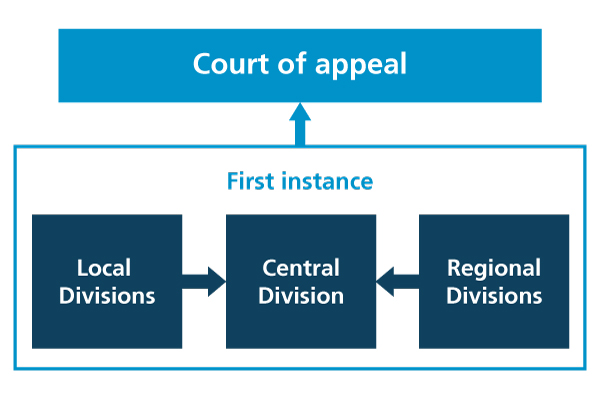| A Unitary Patent is an option for granted European patents.
European patent applications have a central examination procedure before the European Patent Office (EPO) until grant.
When the EPO grants a patent, the European patent can be validated in one or more of the 38 countries of the European Patent Convention (EPC) of interest to the patent proprietor, turning into a bundle of independent national patents. This means that currently (July 2022), for example, nullity actions after the opposition period are dealt with at a national level and therefore may need to be repeated in each validated country.
With the entry into force of the Unified Patent Court (UPC) Agreement approximately between the end of 2022 and the beginning of 2023, determining the applicability of the so-called “Unitary Patent Package”, it will be possible to obtain at the EPO a Unitary Patent (UP) within 1 month after the publication of the mention of grant.
The UP will have a unitary character so that it can only be limited, transferred, revoked, or lapse, in relation to the entire territory it covers. Annual fees will have to be paid directly to the EPO in a centralized way.
For the time being, that territory extends to the 18 EU Member States that have ratified the UPC Agreement, namely:
Austria, Belgium, Bulgaria, Denmark, Estonia, Finland, France, Germany, Italy, Latvia, Lithuania, Luxembourg, Malta, the Netherlands, Portugal, Romania, Slovenia and Sweden.
Further EU Member States are expected to join in the future.
Switzerland is excluded from the Unitary Patent since it is not a Member State of the EU.
After the grant of an EP patent, the patent proprietor can therefore select one of the options here listed:
- Validate traditionally the EP patent in each country of interest among the 38 selectable countries with single validations.
- Request a Unitary Patent, covering in one shot for the time being 17 EU Member States.
- Request a Unitary Patent and, in addition, perform one or more validations in the individual states of interest among the Participating EU Member States having not yet completed the ratification of the UPC Agreement (CY, GR, IE, SK, CZ, HU), the non-participating EU Member States (ES, PL, HR) and/or the States of the European Patent Convention which are not members of the EU (CH, LI, GB, AL, IS, MK, SM, NO, TR, MC, RS).
It is not possible to simultaneously validate in the same countries (emphasis) an EP patent both as a Unitary Patent and as a bundle of national patents.
During a transitional period, any request for a Unitary Patent based on a granted EP patent will need to be:
- Translated into one of the 23 other official languages of the EU if the EP patent is written in English;
- Fully translated in English if the EP patent is written in French or German.
|






